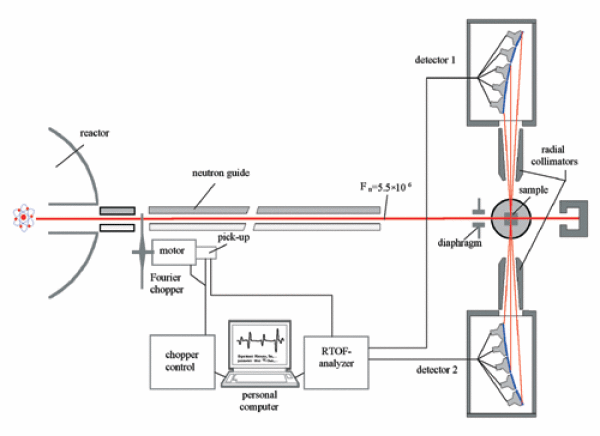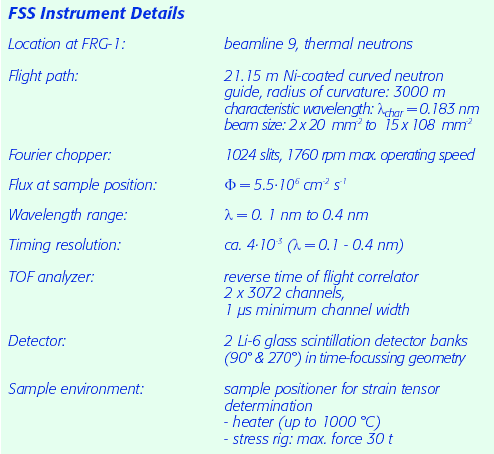FSS
Neutron time-of-flight spectrometer FSS (Fourier Strain Scanner)
FSS is a time-of-flight Fourier spectrometer with special design features for non-destructive characterisation of residual stresses in various polycrystalline materials, preferentially multiphase materials (fig.1). It is jointly operated with the Christian-Albrechts-University of Kiel. The instrument is a correlation spectrometer, running in the so-called reverse time-of-flight (RTOF) mode.

A neutron RTOF (reverse time-of-flight) spectrometer is an innovative chopper system, based on the Fourier method, which uses a continuous rotational speed distribution and an online correlation, while neutron intensity and instrumental resolution are no more interrelated. It is therefore rather economic in terms of total measuring time for an experiment. The instrument has a number of advantages for stress determination by neutron diffraction:
- The «white» spectrum of the thermal neutrons allows simultaneous investigation of many reflections between 0.1 nm and 0.4 nm neutron wavelength.
- The scattering angles have been chosen for optimal definition of the scattering volume within a specimen.
- Two detectors (at 90° and 270° scattering angles) can be operated simultaneously, covering two orthogonal directions within the specimen investigated.
- Because of the fixed scattering geometry, special sample environments can easily be set up (externally applied stresses, variable temperatures, stresses under operating conditions). A wide range of weights and sizes of samples is permitted by the experiment.
